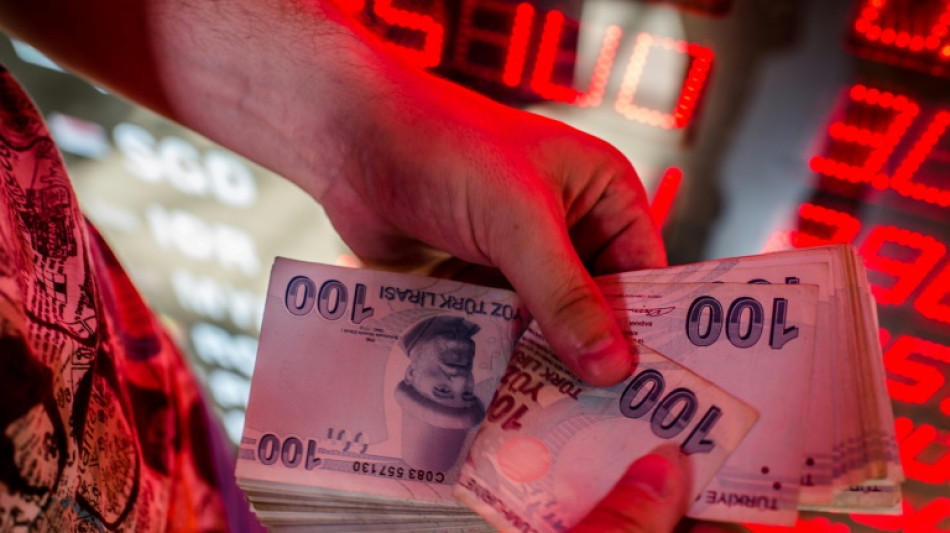
-
 Spurs reach Europa League final to keep Postecoglou's trophy boast alive
Spurs reach Europa League final to keep Postecoglou's trophy boast alive
-
US unveils ambitious air traffic control upgrade
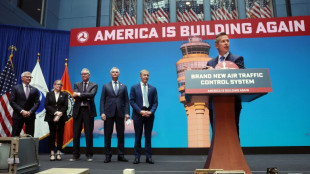
-
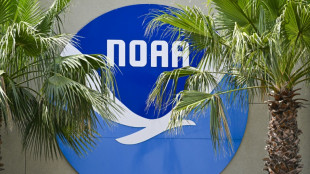 US climate agency stops tracking costly natural disasters
US climate agency stops tracking costly natural disasters
-
Germany slams Russian 'lies', France warns of war 'spectre' in WWII commemorations
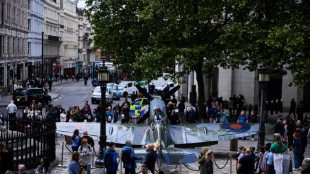
-
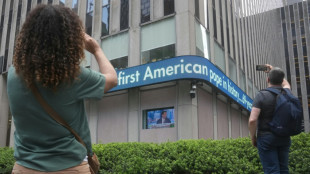 'A blessing': US Catholics celebrate first American pope
'A blessing': US Catholics celebrate first American pope
-
Trump hails 'breakthrough' US-UK trade deal
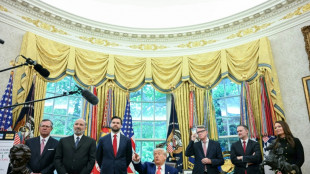
-
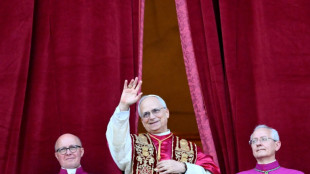 Cardinals elect first American pope as Robert Francis Prevost becomes Leo XIV
Cardinals elect first American pope as Robert Francis Prevost becomes Leo XIV
-
NHL Ducks name Quenneville as coach after probe into sex assault scandal
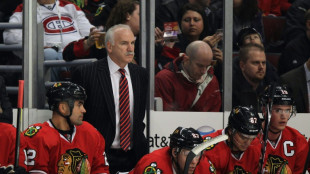
-
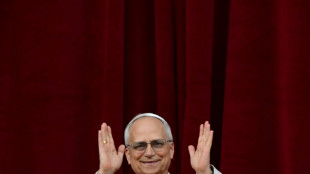 'Great honor': Leaders welcome Leo, first US pope
'Great honor': Leaders welcome Leo, first US pope
-
What is in the new US-UK trade deal?
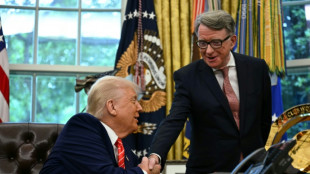
-
 MLB Pirates fire Shelton as manager after 12-16 start
MLB Pirates fire Shelton as manager after 12-16 start
-
Alcaraz '100 percent ready' for return to action in Rome

-
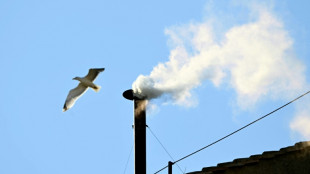 Prevost becomes first US pope as Leo XIV
Prevost becomes first US pope as Leo XIV
-
Andy Farrell holds out hope for son Owen after Lions omission

-
 Roglic leads deep field of contenders at tricky Giro d'Italia
Roglic leads deep field of contenders at tricky Giro d'Italia
-
White smoke signals Catholic Church has new pope
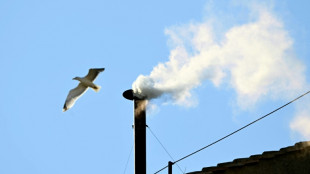
-
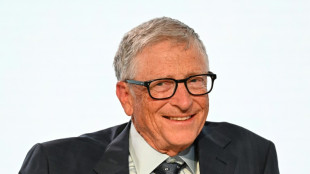 Bill Gates speeds up giving away fortune, blasts Musk
Bill Gates speeds up giving away fortune, blasts Musk
-
LA Coliseum, SoFi Stadium to share 2028 Olympic opening ceremony
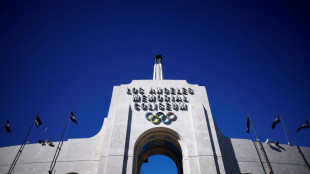
-
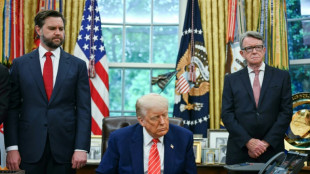 Trump unveils 'breakthrough' US-UK trade deal
Trump unveils 'breakthrough' US-UK trade deal
-
Andy Farrell holds out hope for Owen Farrell after Lions omission

-
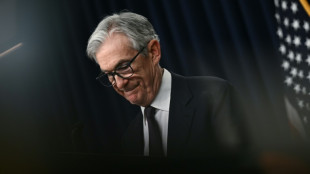 Trump calls US Fed chair 'fool' after pause in rate cuts
Trump calls US Fed chair 'fool' after pause in rate cuts
-
Stocks rise as US-UK unveil trade deal
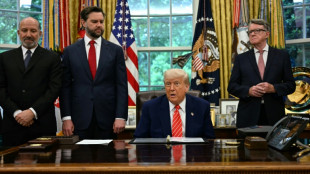
-
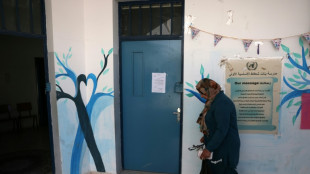 UN says Israel school closures in east Jerusalem 'assault on children'
UN says Israel school closures in east Jerusalem 'assault on children'
-
Itoje grateful for 'tremendous honour' of leading Lions in Australia

-
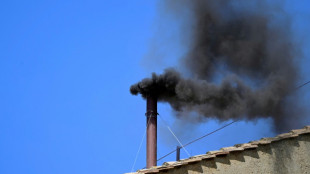 Cardinals to vote anew for pope after second black smoke
Cardinals to vote anew for pope after second black smoke
-
Arsenal fall short again as striker woes haunt Arteta
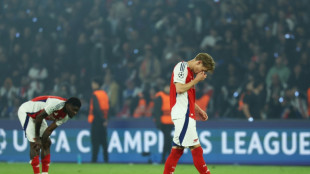
-
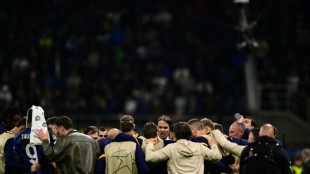 Inter turn attentions to fading Serie A title defence after Barca triumph
Inter turn attentions to fading Serie A title defence after Barca triumph
-
Elk could return to UK after 3,000 years as plan wins funding

-
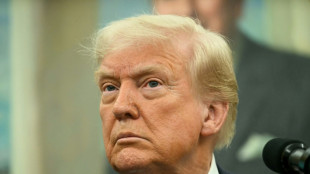 Trump announces 'full and comprehensive' trade deal with UK
Trump announces 'full and comprehensive' trade deal with UK
-
Putin and Xi rail against West as Ukraine reports truce violations
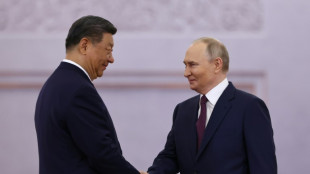
-
 England's Itoje to captain British and Irish Lions rugby team in Australia
England's Itoje to captain British and Irish Lions rugby team in Australia
-
Gates Foundation to spend $200 bn through 2045 when it will shut down
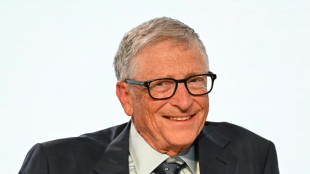
-
 Swiatek makes fast start at Italian Open
Swiatek makes fast start at Italian Open
-
Israel's aid blockade to Gaza 'unacceptable': Red Cross
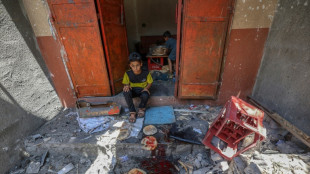
-
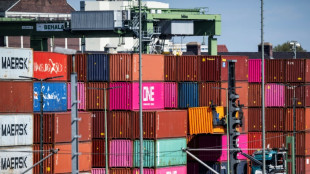 EU threatens to target US cars, planes if Trump tariff talks fail
EU threatens to target US cars, planes if Trump tariff talks fail
-
Amnesty says UAE supplying Sudan paramilitaries with Chinese weapons
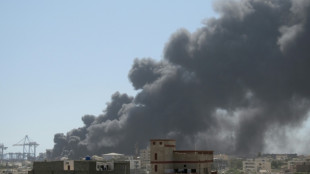
-
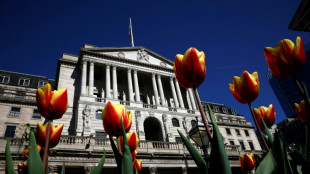 Bank of England cuts interest rate as US tariffs hit economy
Bank of England cuts interest rate as US tariffs hit economy
-
Germany slams Russian 'lies' on Ukraine in WWII commemoration
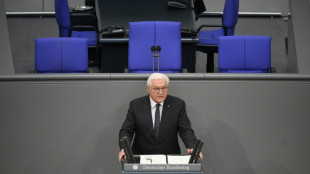
-
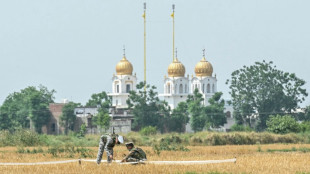 Pakistan and India accuse each other of waves of drone attacks
Pakistan and India accuse each other of waves of drone attacks
-
Thrilling PSG home in on elusive Champions League trophy

-
 Wolf protection downgrade gets green light in EU
Wolf protection downgrade gets green light in EU
-
Fijian Olympic medallist Raisuqe killed after car hit by train

-
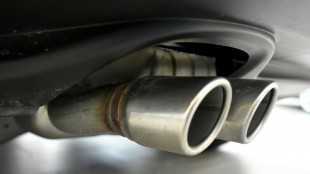 EU parliament backs emissions reprieve for carmakers
EU parliament backs emissions reprieve for carmakers
-
Trump announces trade agreement with UK
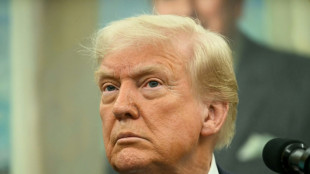
-
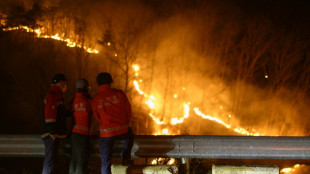 Global temperatures stuck at near-record highs in April: EU monitor
Global temperatures stuck at near-record highs in April: EU monitor
-
Stocks rise as Trump signals US-UK 'trade deal'

-
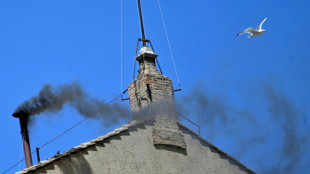 Second black smoke, cardinals to vote again for new pope
Second black smoke, cardinals to vote again for new pope
-
Screams and shattered glass under Pakistan bombardment
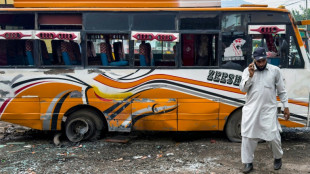
-
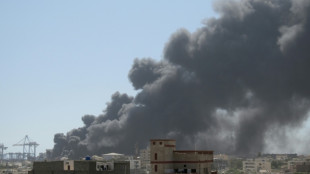 Drone strikes spark civilian exodus from army-controlled Sudan aid hub
Drone strikes spark civilian exodus from army-controlled Sudan aid hub
-
First responders in Gaza run out of supplies


Earthquake sends tremors through Turkey's fragile economy
Turkey was already battling runaway inflation and relying on rich allies for funding to keep its economy afloat when a massive earthquake killed tens of thousands, razed entire cities and left millions needing urgent help.
Now, it must pour billions of dollars into rebuilding 11 southeastern provinces flattened by the February 6 tremor -- the worst disaster of its post-Ottoman history.
That money will have to come on top of the billions of dollars in election promises that President Recep Tayyip Erdogan has made in the run-up to crucial polls still tentatively planned for May 14.
All this cash could turbo-charge consumer spending and industrial production -- two key indicators of economic growth.
The problem for Erdogan, however, is that Turkey is very short of funds.
The central bank's vanishing coffers have been replenished by assistance from Russia and oil-rich Gulf states, which has helped Turkey spend tens of billions of dollars propping up the lira in the past few years.
But economists believe that money is only sufficient to keep Turkey's finances in order -- and the troubled lira from collapsing -- until the May polls.
Now, Erdogan must repair some $84.1 billion in quake damage, according to an estimate from a prominent business group.
Other experts' estimates are more conservative, putting the total closer to $10 billion.
- Reconstruction boost -
With elections in mind, Erdogan has already promised to provide new homes to the millions affected within a year.
Should he find the cash, leaning heavily again on foreign donors, Erdogan will need to allocate much of it to the construction sector to rebuild parts of Turkey from the ground up.
Although contractors are now being blamed for following lax standards that allowed so many buildings to crumble, Erdogan relied on the sector to modernise much of the country with airports, roads and hospitals.
"The boost to output from reconstruction activities may largely offset the negative impact of the disruption to economic activity," the European Bank for Reconstruction and Development (EBRD) said.
For the overall economy, at least, there are glimmers of hope.
The area affected is one of Turkey's least developed, contributing only nine percent to gross domestic product (GDP).
But Turkey's agricultural production could take a hit.
Unay Tamgac, associate professor of economics at Ankara's TOBB ETU University, said the region creates 14.3 percent of Turkey's total agriculture, fishing and forestry output.
The region is a global exporter of food such as apricots, she added, warning there could be a knock-on effect on prices.
The UN's Food and Agriculture Organisation has warned of disruptions to basic food production in Turkey and Syria.
- Better than 1999? -
The quake also damaged energy facilities, infrastructure, transportation, irrigation and logistics, added Tamgac.
Some look back to history for guidance.
Mahmoud Mohieldin, an executive director at the International Monetary Fund (IMF), said the 7.8-magnitude tremor could hurt the economy less than a 7.6-magnitude quake in 1999, which claimed more than 17,000 lives.
An IMF spokesperson later said Mohieldin was speaking in a private capacity and not representing the fund's official view.
The Turkish economy weakened by around 0.5 to 1.0 percent of gross domestic product (GDP) in 1999. But that tremor hit the country's industrial heartland -- including economic powerhouse Istanbul.
The economy quickly rebounded, however, growing by 1.5 percent of GDP in 2000 thanks to reconstruction efforts, the EBRD said.
Last week's quake also "did not affect areas farther west favoured by foreign tourists, who have become one of Turkey's most important sources of foreign exchange", Wolfango Piccoli, an analyst at Teneo consultancy, said in a note.
- Headwinds -
The focus, then, is where Erdogan will get the cash to spend on rebuilding.
"It's clear there will be a need for foreign currency," said Baki Demirel, associate professor of economy at Yalova University, since Turkey will now import more.
Turkey's sovereign debt levels are relatively low, meaning the government has some leeway to issue long-term debt.
On the downside, foreign investors have shunned Turkey because of Erdogan's unorthodox economic views, which include an ill-fated attempt to fight inflation by slashing interest rates.
When the quake hit, Turkey's annual inflation rate had slowed from a two-decade high of 85 percent last year to 58 percent.
With all the headwinds, economists agree the economy will stall in the coming year.
"Despite the uncertainty and different factors at play, such as global economic conditions and internal political expectations, the Turkish economy is likely to stagnate or grow below its natural rate," economist Murat Kubilay wrote in a note online.
A.Jones--AMWN